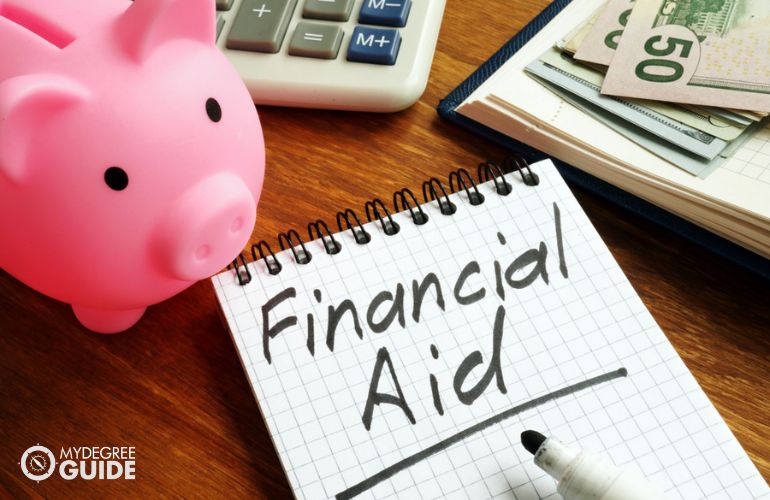Whether you want to change fields, gain new skills, or qualify for a leadership position, getting a second bachelor’s degree might help boost your career.

If you’ve already finished one academic program, you may be wondering, “Can you get a second bachelor degree after graduating?” No matter how long ago you graduated, completing one degree doesn’t prevent you from pursuing another.
Editorial Listing ShortCode:
Before you embark on a new educational journey, it’s beneficial to evaluate your options and determine whether a second bachelor’s degree is the best way to achieve your goals.
Getting a Second Bachelor’s Degree

If you complete two undergraduate academic programs, you can earn a second bachelor’s degree. Some students complete both degrees simultaneously by enrolling as double majors. Others go back to school and earn their second degrees long after finishing their first.
A single bachelor’s degree satisfies the education requirements for many employers, but there are many benefits to pursuing an additional degree, such as:
- Enhancing your job skills
- Broadening your career prospects with a complementary degree
- Completing prerequisites for graduate school
- Preparing for a career change
- Training to reenter the workforce after a period of unemployment
- Updating knowledge of a rapidly changing industry
Your motivation for returning to school is important in determining what you should select as a major.
If you want to continue working in your current industry, you might decide to complete a degree in a field that’s closely related to your previous academic program. For example, if you work as a CPA and earned a bachelor’s degree in accounting, you might earn a second degree in finance. This may help you advance into a management position or negotiate a higher salary with your employer.
On the other hand, if you hope to shift your career trajectory, you may be better served by a degree that’s completely unrelated to your prior studies. For instance, if you have a degree in engineering but want to become a technical writer, an English degree could be beneficial.
How to Get a Second Bachelor’s Degree

Deciding that you want to earn a 2nd bachelor’s degree is a big step, but it’s only the first of many on the road to gaining another academic credential.
The process of enrolling in a second degree program includes:
- Researching your options. You can compare the benefits and drawbacks of second bachelor’s degrees, master’s degrees, and certification programs.
- Assessing school programs. You can look for accredited colleges with majors that align with your career interests.
- Consulting with advisors. You can speak to staff at prospective schools to learn more about transfer credits, financial aid options, and admissions requirements.
- Applying. Once you find the right program, you can begin the application process, making sure to provide official transcripts that reflect any transferable courses you completed at other institutions.
After you’re admitted, you can confirm that your transfer credits have been received and applied toward your academic program so that you don’t have to repeat courses you’ve already taken.
Do you need an associate’s degree to get a bachelor’s degree? You don’t typically need an associate’s degree to obtain a bachelor’s degree as you can directly enroll in a bachelor’s program at a college or university.
Factors to Consider Before Getting a Second Bachelors Degree

Enrolling in a second bachelor’s degree program isn’t a decision to be taken lightly. Before you move forward, it’s strategic to evaluate these crucial factors:
- Time. A second bachelor’s degree requires a substantial time commitment. You might consider whether you’re comfortable delaying your professional aspirations by several years while you complete your degree.
- Cost. Any undergraduate degree can be costly, especially when you take into account the need to pay tuition and cover your living expenses while you study. You can research how many previous courses you could transfer to reduce the cost of your degree.
- Financial aid. If you used financial aid to pay for your first degree, you may be able to do so again for a second program. Students don’t always qualify for enough financial aid to pay for both degrees in full.
- Additional options. You can compare the expense and time required to complete a second bachelor’s degree to other available options. For instance, a two-year master’s degree may help you learn the same skills in less time.
While these factors can make some students hesitant to earn a second degree, the opportunity to gain knowledge and explore new subjects makes it worthwhile for many.
Alternatives to Getting Two Bachelor’s Degrees

Getting a second bachelor’s degree isn’t the only way advance or change your career. If you’re wanting to get another credential, you could also consider these alternate paths:
- Master’s degree. A master’s degree is generally faster than a second bachelor’s degree, and it may be a strategic option if you plan to remain in your current field. Many graduate programs are open to students from different academic backgrounds as long as they have completed prerequisite courses.
- Professional certification. A professional certification allows you to demonstrate your expertise. It’s significantly less expensive than a bachelor’s degree and typically only requires you to pass an exam.
- Certificate. If you want to focus on a certain set of skills, a certificate program may be more useful. Certificate programs consist of a series of courses and can often be completed in 1 year or less.
You can look closely at your schedule, finances, and goals to decide which type of educational path is right for you.
Should I Get a Second Bachelor’s Degree?

In addition to asking, “Can you get a second bachelor’s degree?” you may also be wondering whether you should. The answer depends on your personal circumstances and future plans.
Completing a second degree might be helpful or necessary if you’ve decided to change career paths. For instance, a psychology student who now wants to work as a microbiologist won’t have the necessary training for that career without obtaining a second degree.
Your ability to earn a second degree also rests on whether you have the time and money available to invest in earning another bachelors. The amount of credits you can transfer over may help determine your potential cost and time commitment.
Can I Get Financial Aid for a Second Degree?

Can you get multiple bachelor degrees? Yes, but it could be costly. Depending on how much federal aid you used for your first degree, you may qualify for federal loans for your second.
When you take out federal loans for an undergraduate degree, you can only borrow up to a pre-determined limit. If you reached that limit during your initial program, you may not be able to borrow more funds for your new degree.
For students who have maxed out their federal loans, scholarships might help fill the gap. Many scholarship programs are open to students who are earning their second quick degrees online or on campus.
How Long Does It Take to Get a Second Bachelor’s Degree?

Taking on a second academic program is a major endeavor, but it may not be as time consuming as your first degree. Transfer credits from your previous program might satisfy most or all of your general education requirements, allowing you to graduate more quickly.
If you enroll as a full-time student and have several transfer credits, you may be able to finish your degree in 2 to 3 years. Enrolling as a part-time student could extend that timeframe but could also allow you more flexibility to maintain your studies and work responsibilities.
Is Getting a Second Bachelor’s Degree Worth It?

Yes, getting a second bachelor’s degree is worth it for many students. What can you do with a bachelors degree? Completing another degree may help you qualify for new job opportunities with a wider range of employers. You’ll have the chance to gain more knowledge and expand your professional skill set.
In addition, taking the time to earn a second degree is also evidence of your dedication to your ongoing professional development and education. This might strengthen your candidacy for potential jobs moving forward. A second degree can also offer personal enrichment, allowing you to learn more about your current field or explore an entirely new one.
If you’re ready to grow your qualifications with a second bachelors, you could start exploring online bachelor’s degree programs or dual degree programs from accredited schools today.
